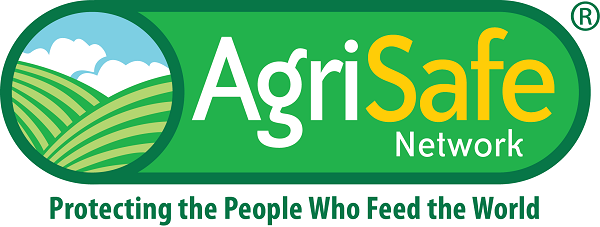AgriSafe Learning
Catalog Advanced Search
-
Contains 3 Component(s), Includes Credits Includes a Live Web Event on 02/17/2026 at 1:00 PM (CST)
Counseling on Access to Lethal Means (CALM) is a powerful addition to existing strategies to reduce the risk of suicide death in at-risk people while respecting their rights and autonomy. Help keep your at-risk clients safe by learning how to collaborate with them to implement safe storage of firearms and dangerous medications. This training is listed in the Suicide Prevention Research Center's best practice registry. The oldest and mot widely-used training on lethal means safety, CALM teaches why means matter and equips individuals with tools to intervene effectively with those at risk for suicide both upstream--before a crisis hits-- as well as in times of crisis. This training workshop is designed specifically for clinicians and includes case studies, breakout discussions and valuable clinical training videos.
Summary: Counseling on Access to Lethal Means (CALM) is a powerful addition to existing strategies to reduce the risk of suicide death in at-risk people while respecting their rights and autonomy. Help keep your at-risk clients safe by learning how to collaborate with them to implement safe storage of firearms and dangerous medications. This training is listed in the Suicide Prevention Research Center's best practice registry. The oldest and most widely-used training on lethal means safety, CALM teaches why means matter and equips individuals with tools to intervene effectively with those at risk for suicide both upstream (before a crisis hits), as well as in times of crisis. This training workshop is designed specifically for clinicians and includes case studies, breakout discussions and valuable clinical training videos.
Intended Audience: Created for mental health clinicians, primary care providers, substance abuse counselors, hotline responders, and crisis intervention services.
Objectives: At the end of this webinar, participants will be able to…
- List facts about suicide.
- Identify how to inquire about the accessibility of lethal means.
- Practice how to suggest safe storage.
- Appraise results of lethal means reduction in countries outside the U.S.
- Practice skills through group discussion and interactive activities.
This course will only be offered live, so please plan to attend during the times listed. The registration fee for this course is non-refundable.
Continuing Education for Florida Licensed Professional Counselors: The Florida Psychological Association is approved by Florida Department of Health, Board of Psychology and Board of School Psychology to sponsor continuing education for psychologists. The Florida Psychological Association is approved by the Florida Board of Clinical Social Work, Marriage and Family Therapy, and Mental Health Counseling as a provider of continuing education. FPA maintains responsibility for this program and its contents.
Florida Psychological Association is approved by the American Psychological Association to sponsor continuing education for psychologists. Florida Psychological Association maintains responsibility for this program and its content.
_______________________________________________________________________________________________________________________________________________________
Continuing Education for Louisiana Licensed Professional Counselors: This workshop has been approved for 3.5 CE clock hours in Diagnosis by the Louisiana Counseling Association as authorized by the Louisiana Mental Health Law (R.S. 37:1101-1123).
-
Register
- Non-member - $90
- Member - Free!
- More Information
-
Contains 3 Component(s)
Join this free webinar to learn the latest information on avian influenza threats affecting workers and animals in the poultry industry. Hear from industry leaders and public health researchers as they share current insights, risks, and prevention strategies.
Join this free webinar to learn the latest information on avian influenza threats affecting workers and animals in the poultry industry. Hear from industry leaders and public health researchers as they share current insights, risks, and prevention strategies.

Mathew Spencer, CSP, SHRM-CP
Vice President HR & Safety Programs
U.S. Poultry & Egg Association
Matthew Nonnenmann, PhD, CIH
Professor
UNMC Department of Environmental, Agricultural and Occupational Health
-
Register
- Non-member - Free!
- Member - Free!
- More Information
-
Register
-
Contains 3 Component(s), Includes Credits
Join this session to learn how assistive technology is transforming agriculture for farmers and ranchers with disabilities—and how, together, we can build more inclusive rural communities.
Summary: Join this session to learn how assistive technology is transforming agriculture for farmers and ranchers with disabilities—and how, together, we can build more inclusive rural communities.
Objectives: During this presentation, attendees will learn...
- Physical and cognitive disabilities can create real obstacles in daily farm operations.
- This might include mobility issues—like climbing onto a tractor or navigating rough terrain—or sensory impairments like limited vision or hearing. Cognitive disabilities, such as those caused by brain injuries or conditions like PTSD, can affect decision-making and time management.
- Beyond the physical, there are economic and social challenges.
- Adaptive equipment can be costly, and many rural communities lack support services. There's also the stigma. Isolation. A lack of understanding. We will discuss that despite these challenges, many farmers persevere—especially when given the right tools.
Intended Audience: All people working with or in the agriculture community, especially those with disabilities or working with people with disabilities.
Cindy Kovar, BS, CPST, CarFit Technician & Coordinator, AARP Certified Instructor
Program Manager
Texas AgrAbility
Cindy Kovar is a proud graduate of Texas A&M University with over 25 years of experience in the field of community health. As a key contributor to the Texas AgrAbility Project, Cindy brings a wealth of expertise in fostering client and partner relationships, designing impactful educational programs, conducting comprehensive farm and ranch assessments, and recommending assistive technologies tailored to agricultural needs. Her greatest career achievement lies in the meaningful and lasting impact she has had on the lives of Texans across the state.
-
Register
- Non-member - Free!
- Member - Free!
- More Information
-
Contains 3 Component(s)
Join this free webinar to learn the latest information on avian influenza threats affecting workers and animals in the dairy industry. Hear from industry leaders and public health researchers as they share current insights, risks, and prevention strategies.
Join this free webinar to learn the latest information on avian influenza threats affecting workers and animals in the dairy industry. Hear from industry leaders and public health researchers as they share current insights, risks, and prevention strategies.

Matthew Nonnenmann, PhD, CIH
Professor
UNMC Department of Environmental, Agricultural and Occupational Health
Kris Bousquet
Executive Director
Nebraska State Dairy Association
Kris grew up on a family dairy farm before joining the Nebraska Air National Guard and attending college at the University of Nebraska-Lincoln. He has worked in the dairy industry his entire life and has helped develop new markets and advocate for Nebraska's dairy industry in the Unicameral and Washington DC.
David I. Douphrate PhD, MPT, MBA, CPE, CSP
Associate Professor
University of Texas School of Public Health in San Antonio
Dr. David Douphrate is an Associate Professor with the Southwest Center for Occupational and Environmental Health, located at the University of Texas, School of Public Health. Douphrate conducts research and outreach related to worker health and safety through the High Plains and Intermountain Center for Agricultural Health and Safety (HICAHS), headquartered at Colorado State University. Douphrate and his colleagues conduct research and outreach with dairy producers to improve safe working environments while simultaneously improving dairy productivity and efficiency.
-
Register
- Non-member - Free!
- Member - Free!
- More Information
-
Register
-
Contains 3 Component(s)
For producers, spotting the first signs of a possible avian influenza outbreak can bring on a flood of stress, worry, and tough decisions. The emotional toll — before, during, and after flock depopulation — is real, and it affects everyone involved. So how do we recognize when someone’s struggling with all of this? And maybe more importantly, how do we show up for them — as coworkers and team members?
For producers, spotting the first signs of a possible avian influenza outbreak can bring on a flood of stress, worry, and tough decisions. The emotional toll — before, during, and after flock depopulation — is real, and it affects everyone involved. So how do we recognize when someone’s struggling with all of this? And maybe more importantly, how do we show up for them — as coworkers and team members?
In this webinar, we’ll talk about how to support each other through the mental and emotional challenges that come with avian influenza outbreaks. We’ll walk through some simple strategies that individuals and teams can use, and introduce a helpful tool designed to guide those conversations and check-ins. Extra resources will be provided that you can lean on, whether you’re going through it yourself or helping someone else.
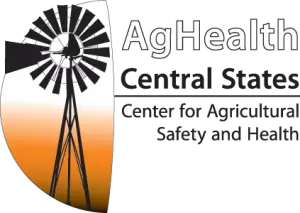
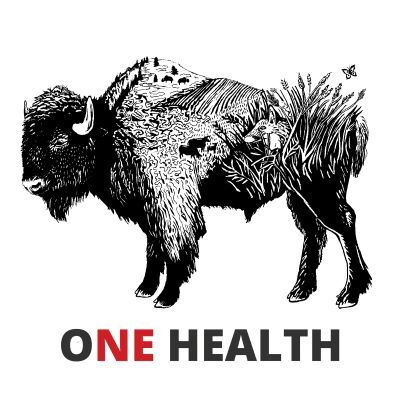

Tara Haskins, DNP, MSN, RN, AHN-BC
Total Farmer Health Director
AgriSafe Network
Dr. Tara Haskins oversees partnerships to support AgriSafe’s Total Farmer Health initiative. She is also responsible for AgriSafe’s mental health programming. Tara contributes to curriculum design and implements new Total Farmer Health trainings that optimize and expand upon existing programs. She collaborates with organizations and government agencies that are interested in using the Total Farmer Health model as a public health framework.
Tara has worked in healthcare as a registered nurse for 37 years with clinical experience in medical surgical, critical care, crisis intervention and opioid and alcohol outpatient treatment. Dr. Haskins worked for 11 years in academia as lead faculty in musculoskeletal and psychiatric mental health nursing content across three universities.
Linda Emanuel, BSN, RN
Community Health Liaison
AgriSafe Network
Shaped by her experience as a Registered Nurse in rural Nebraska and as part of a multi-generational family farm, Linda grew into advocating for and educating agricultural producers and healthcare professionals. As the Agricultural Health Liaison at the AgriSafe Network, she is responsible for curriculum design of outreach programs that serve the holistic health needs of today’s farmers and ranchers. She serves as project lead within the Midwest region for the Total Farmer Health Coach program, which has a direct focus on behavioral health. Her liaison work is most exceptionally seen in the Talking Total Farmer Health podcast which she hosts, and the health/wellness outreach trainings she leads within the agricultural population she serves.
Linda has a diverse background in acute care nursing, intensive care, pediatrics, home health care, and rural primary care clinics. She is an AgriSafe Nurse Scholar, and a Nebraska LEAD fellow. She belongs to the American Nurses Association, Rural Nurses Organization, and Nebraska Nurses Association. She and her husband own and operate a row crop farming operation that has welcomed back their sons and families to continue a legacy.
-
Register
- Non-member - Free!
- Member - Free!
- More Information
-
Register
-
Contains 5 Component(s), Includes Credits
Overdose deaths are a leading cause of injury-related death in the United States and the majority of overdose deaths involve opioids. This epidemic is impacting communities all across the country. Naloxone is a life-saving medication that can reverse an overdose from opioids when given in time. This session is designed to prepare communities and non-medical public and safety professionals to recognize and respond to an opioid overdose. Participants will learn the warning signs of opioid overdose and how to intervene safely using naloxone. Simultaneous interpretation in Spanish will be available for this webinar.
Summary: Overdose deaths are a leading cause of injury-related death in the United States and the majority of overdose deaths involve opioids. This epidemic is impacting communities all across the country. Naloxone is a life-saving medication that can reverse an overdose from opioids when given in time. This session is designed to prepare communities and non-medical public and safety professionals to recognize and respond to an opioid overdose. Participants will learn the warning signs of opioid overdose and how to intervene safely using naloxone.
Objectives: At the end of this webinar participants will be able to...
- Identify risk factors for opioid intentional and nonintentional overdose
- Recognize the signs of opioid overdose
- Respond effectively to an opioid overdose
- Correctly administer intranasal naloxone
Intended Audience: All communities, academia, workplace employers, and employees
This training is is supported by:

Continuing Education for Multiple Disciplines: This course is jointly provided by the University of Michigan Center for Occupational Health and Safety Engineering.
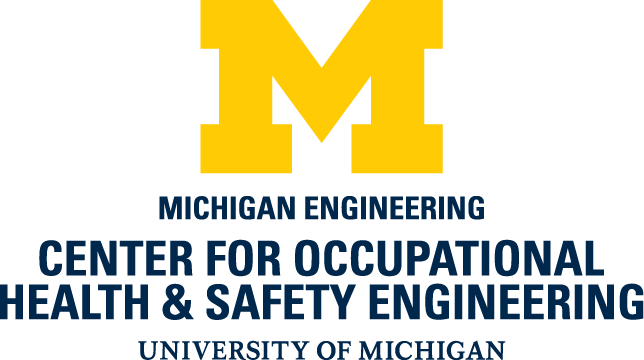
Community Health Workers: This program provides 1.0 Hour of DSHS-certified CHW CEUs (0.25 hr., Communication Skills; 0.25 hr., Interpersonal Skills; 0.25 hr., Teaching Skills; and 0.25 hr., Knowledge Based on Specific Health Issues).

Tara Haskins, DNP, MSN, RN, AHN-BC
Total Farmer Health Director
AgriSafe Network
Dr. Tara Haskins oversees partnerships to support AgriSafe’s Total Farmer Health initiative. She is also responsible for AgriSafe’s mental health programming. Tara contributes to curriculum design and implements new Total Farmer Health trainings that optimize and expand upon existing programs. She collaborates with organizations and government agencies that are interested in using the Total Farmer Health model as a public health framework.
Tara has worked in healthcare as a registered nurse for 37 years with clinical experience in medical surgical, critical care, crisis intervention and opioid and alcohol outpatient treatment. Dr. Haskins worked for 11 years in academia as lead faculty in musculoskeletal and psychiatric mental health nursing content across three universities.
-
Register
- Non-member - Free!
- Member - Free!
- More Information
-
Contains 4 Component(s), Includes Credits
This session will review the clinical features, specimen handling, epidemiologic clues, and reporting steps for New World screwworm myiasis so clinicians can recognize when to consider this rare but serious parasitic infestation, emphasizing that common wound etiologies remain far more likely and that screwworm should be a low-probability diagnosis except when compatible wounds, visible larvae, and recent travel/exposure to endemic areas are present.
Summary: This session will review the clinical features, specimen handling, epidemiologic clues, and reporting steps for New World screwworm myiasis so clinicians can recognize when to consider this rare but serious parasitic infestation, emphasizing that common wound etiologies remain far more likely and that screwworm should be a low-probability diagnosis except when compatible wounds, visible larvae, and recent travel/exposure to endemic areas are present.
Objectives: At the end of this presentation, participants will be able to...
- Recognize key signs of New World screwworm myiasis and when to suspect it.
- Manage initial bedside care: remove larvae, care for the wound, and preserve specimens.
- Report suspected cases and communicate relevant travel or animal-exposure history to appropriate officials.
Disclosure to learners: None of the planners for this educational activity have relevant financial relationship(s) to disclose with ineligible companies whose primary business is producing, marketing, selling, re-selling, or distributing healthcare products used by or on patients.
Andrew Hennenfent, DVM, MPH, DACVPM
State Public Health Veterinarian
Iowa Department of Health and Human Services
Dr. Andrew Hennenfent, DVM, MPH, DACVPM, is the State Public Health Veterinarian for Iowa, overseeing zoonotic disease prevention and response. Dr. Hennenfent completed an applied epidemiology fellowship in infectious disease at the District of Columbia Department of Health, then oversaw the city’s emerging and zoonotic disease program and served as the city’s public health veterinarian. After joining the Iowa Department of Health and Human Services, Dr. Hennenfent oversaw the Healthcare Associated Infections (HAI) Program, leading planning and response efforts for antimicrobial stewardship efforts and infection prevention technical assistance provided to Iowa healthcare personnel to improve infection control practices in all settings. Prior to joining Iowa HHS Dr. Hennenfent worked for the Iowa Department of Agriculture and Land Stewardship (IDALS).
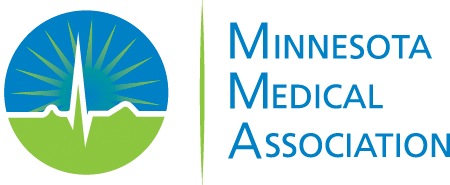
This activity has been planned and implemented in accordance with the accreditation requirements and policies of the Accreditation Council for Continuing Medical Education (ACCME) through the joint providership of the Minnesota Medical Association and AgriSafe Network. The Minnesota Medical Association (MMA) is accredited by the Accreditation Council for Continuing Medical Education to provide continuing medical education for physicians.
The Minnesota Medical Association designates this live activity for a maximum of 1 AMA PRA Category 1 Credit™. Physicians should claim only the credit commensurate with the extent of their participation in the activity.

The University of Cincinnati, Department of Environmental and Public Health Sciences, Education and Research Center offers contact hours for this activity. Upon completing the evaluation, learners will receive a certificate of completion. This course can meet continuing education requirements for a variety of professionals including:
- BGC criteria for IH/CIH professionals; https://gobgc.org/
- BCSP criteria for safety professionals; https://www.bcsp.org/recertification/
- CPH criteria for public health professionals; https://www.nbphe.org/certified-in-public-health/cph-recertification/
Please contact your accrediting agency regarding questions about receiving credits for this activity.
-
Register
- Non-member - $30
- Member - Free!
- More Information
-
Contains 3 Component(s)
Driving demands more than skill—it requires awareness, presence, and emotional control. This presentation explores how mindfulness practices can improve focus, reduce stress, and enhance safety on the road. Participants will learn how slow, intentional movements, calm breathing, and emotional regulation can help prevent reactive driving behaviors and fatigue-related crashes. The session also addresses the dangers of multitasking, drowsy driving, and “passive fatigue” caused by long, monotonous routes. Practical tools and take-home strategies—such as mindful breathing exercises, pre-drive check-ins, and healthy rest habits—equip drivers to stay alert and proactive. This session reminds participants that “Your mind and presence are your most important safety features.”
Summary: Driving demands more than skill—it requires awareness, presence, and emotional control. This presentation explores how mindfulness practices can improve focus, reduce stress, and enhance safety on the road. Participants will learn how slow, intentional movements, calm breathing, and emotional regulation can help prevent reactive driving behaviors and fatigue-related crashes. The session also addresses the dangers of multitasking, drowsy driving, and “passive fatigue” caused by long, monotonous routes. Practical tools and take-home strategies—such as mindful breathing exercises, pre-drive check-ins, and healthy rest habits—equip drivers to stay alert and proactive. This session reminds participants that “Your mind and presence are your most important safety features.”
Objectives: During this presentation, attendees will learn...
- How sleep impacts health and safety
- The effects of drowsy and distracted driving
- What mindfulness is
- Tips and techniques for mindful driving
Intended Audience: Anyone who drives, with a particular focus on driver’s education students.
Ashley Fenning
Food, Nutrition, and Health Instructor
Nebraska Extension
Ashley Fenning is the Food, Nutrition, and Health Instructor with Nebraska Extension, based in Morrill County. She serves the seven southern counties of the Nebraska Panhandle, where she provides education and outreach to promote healthy lifestyles and well-being across communities. Originally from rural Nebraska, Ashley has lived and worked in agricultural settings her entire life and continues to reside on her family’s farm. She played college basketball for four years, an experience that strengthened her passion for teamwork, leadership, and perseverance—skills she continues to apply in her Extension work and everyday life. Ashley is married to her husband, Jake, and together they have a four-year-old daughter, Carson. She is currently pursuing her Master’s Degree in Leadership through the University of Nebraska–Lincoln.
In her free time, Ashley enjoys traveling with her family, helping her husband build their new home, and experimenting with new recipes in the kitchen. Ashley created her Safe Driving presentation after seeing firsthand how quickly accidents can impact rural families and communities. She is passionate about helping individuals—especially youth—understand the importance of safety, responsibility, and making smart choices on the road.
-
Register
- Non-member - Free!
- Member - Free!
- More Information
- How sleep impacts health and safety
-
Contains 3 Component(s), Includes Credits
ATVs and UTVs are widely used in rural areas but are a leading cause of injury and death, particularly on public roads where they are not designed to operate. Despite safety warnings, more communities are legalizing their use on roadways. This webinar explores the risks of on-road ATV/UTV use, design-related safety concerns, and strategies rural families can use to prevent crashes and injuries.
Summary: Off-road vehicles, including all-terrain vehicles (ATVs) and utility task vehicles (UTVs) are extremely popular and a common source of injury and death in rural areas, especially farms and ranches. While the use of ATVs/UTVs on public roadways increases the likelihood of a crash with another vehicle, the majority of roadway deaths and an even higher proportion of injuries on public roads are single ATV/UTV crashes not involving another motor vehicle.
ATVs/UTVs are designed for off-road use only, and manufacturers have strongly stated that they should not be operated on public roadways. In fact, the majority of deaths associated with these vehicles occur on public roads. Despite this, an increasing number of states, counties, and municipalities across the country are passing laws allowing ATVs/UTVs to operate on public roadways for transportation and recreational purposes. During this presentation, we will discuss the safety issues surrounding ATVs/UTVs on public roads and, in particular, the design elements of ATVs/UTVs that place their operators at greater risk on public roads. We will discuss how rural families can help protect themselves, their families, and employees from ATV/UTV-related crashes and injury.
Objectives: At the end of this webinar, participants will be able to:
- List at least three design features of ATVs and UTVs that contribute to crashes and subsequent injury, and be able to discuss how these features make ATVs/UTVs vulnerable to problems on both paved and unpaved roads.
- Identify at least three other factors that contribute to ATV/UTV-related crashes and injuries, and how they might decrease the risk to themselves, their families, and employees.
- Understand and appreciate ATV/UTV safety messages they might share with others, and how they could be effective advocates for informed safety legislation regarding ATVs/UTVs.
Intended audience: Farmers, ranchers, parents, agriculture production workers, healthcare providers, emergency medical services, public health officials, government and legislative leaders, administrators
The University of Cincinnati, Department of Environmental and Public Health Sciences, Education and Research Center offers 1.0 contact hour for each webinar during National Farm Safety and Health Week. Upon completing the evaluation, learners will receive a certificate of completion. This course can meet continuing education requirements for a variety of professionals including: BGC criteria for IH/CIH professionals, BCSP criteria for safety professionals, CPH criteria for public health professionals.

The University of Cincinnati, Department of Environmental and Public Health Sciences, Education and Research Center offers 1.0 contact hour for each webinar during National Farm Safety and Health Week. Upon completing the evaluation, learners will receive a certificate of completion. This course can meet continuing education requirements for a variety of professionals including: BGC criteria for IH/CIH professionals, BCSP criteria for safety professionals, CPH criteria for public health professionals.

Charles Jennissen, MD
Clinical Professor and Pediatric Emergency Medicine Physician
University of Iowa Carver College of Medicine
Charles Jennissen, MD, is a pediatric emergency medicine physician and a Clinical Professor in the Departments of Pediatrics and Emergency Medicine at the University of Iowa Carver College of Medicine. Dr. Jennissen grew up on a dairy farm in central Minnesota. This plays a large part in his interest in safety and injury prevention, particularly regarding children and teens, and those who work and live on farms. Most of his research activities have addressed injury-related issues, especially those involving off-road vehicles. Dr. Jennissen is very active in the Iowa ATV Safety Taskforce and is a member of a national coalition led by the Consumer Federation of America that has been working to inform the public and governing officials of the dangers of off-road vehicles on public roads. He has been an advisory board member of I-CASH (Iowa Center for Agricultural Safety and Health) for 22 years. He is proud to have received the SAFE KIDS Iowa “People Who Make a Difference” Award in 2006.
-
Register
- Non-member - Free!
- Member - Free!
- More Information
-
Contains 3 Component(s), Includes Credits
Explore the leading causes of injuries and fatalities involving ATVs and UTVs in agricultural settings. Learn practical safety strategies and best practices to help prevent accidents and protect the agricultural community.
Summary: Explore the leading causes of injuries and fatalities involving ATVs and UTVs in agricultural settings. Learn practical safety strategies and best practices to help prevent accidents and protect the agricultural community.
Objectives: At the end of this webinar, participants will be able to:
- To raise ATV and UTV owners and operators' awareness of the hazards and promote safe operation of these machines.
Intended audience: Farmers, ranchers, parents, agriculture production workers, healthcare providers, emergency medical services, public health officials, government and legislative leaders, administrators.
The University of Cincinnati, Department of Environmental and Public Health Sciences, Education and Research Center offers 1.0 contact hour for each webinar during National Farm Safety and Health Week. Upon completing the evaluation, learners will receive a certificate of completion. This course can meet continuing education requirements for a variety of professionals including: BGC criteria for IH/CIH professionals, BCSP criteria for safety professionals, CPH criteria for public health professionals.

The University of Cincinnati, Department of Environmental and Public Health Sciences, Education and Research Center offers 1.0 contact hour for each webinar during National Farm Safety and Health Week. Upon completing the evaluation, learners will receive a certificate of completion. This course can meet continuing education requirements for a variety of professionals including: BGC criteria for IH/CIH professionals, BCSP criteria for safety professionals, CPH criteria for public health professionals.

Bernard W Kennett (Bernie)
Contract Instructor
New York Center for Agricultural Medicine and Health "NYCAMH"
Bernie served for 32 years with the New York State Police, specializing in traffic safety and collision reconstruction. For the last 19 years of their career, Bernie held the position of Troop D Traffic Supervisor, where they led efforts to improve roadway safety and reduce traffic-related incidents.
-
Register
- Non-member - Free!
- Member - Free!
- More Information
Quick Search
Technical Difficulties
Submit a help ticket if you need technical assistance.
Having Computer Issues? Please check your internet browser and security settings to allow permissions for this website. Browsers: Microsoft Edge version 40 or higher; Chrome version 60 or higher, Firefox version 50 or higher; or Safari version 10.1 or higher. We recommend using Google Chrome or Firefox as your browser.
